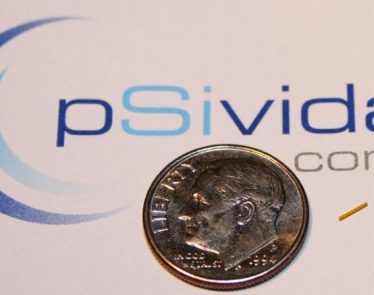
At the Game Developers Conference last month, Alphabet’s Google (NASDAQ:GOOGL) announced that it would officially enter the video game console races, but with a twist this time: There won’t actually be a gaming console. Instead, the tech conglomerate will compete via a cloud-based video game-specific streaming service, potentially comparable with what Netflix offers for television and movie content.
Google’s Stadia cloud gaming platform will allow users to play triple-A gaming titles (id Software’s Doom Eternal and Ubisoft’s Assassin’s Creed were demoed) on any screen, over a Wi-Fi connection. This includes laptops, TVs, tablets, and phones that have a Chrome browser or Chromecast.
Additionally, players that use the Stadia Wi-Fi-connected game controller will have the use of the Assistant button, which lets players pull up a YouTube tutorial to show them how to get past the section of the game they’re currently having trouble with. Stadia claims that it can deliver 4K and 60 frames per second, which certainly sounds impressive, considering that all the computing power will be coming from Google’s own cloud servers.
Whether Google can become a legitimate challenger in gaming devices is still an open question, but it certainly unnerved the Japan market. Following the Stadia announcement, shares for Sony (NYSE:SNE) and Nintendo (OTC:NTDOF) dropped by 4.5% and 4.6%, respectively. The console market is currently led by the Sony PlayStation 4 console, followed by Microsoft’s (NASDAQ:MSFT) Xbox One and the Nintendo Switch.
Yet a cloud-based video game streaming service is what Sony and Microsoft have been experimenting with for quite a while now. In 2012, Sony Interactive Entertainment purchased cloud gaming startup Gaikai, using its tech to offer streaming support for PlayStation Now, a cloud gaming subscription service. It’s even rumored that the next iteration, PlayStation 5, will offer video game streaming, potentially through an upgraded version of PlayStation Now.
>> Gaming Industry Rebounds: Zynga and Glu Mobile Hit Multi Year Highs
Google will also be up against Sony Computer Entertainment’s blockbuster offering of exclusive gaming franchises, including the Last of Us, Gran Turismo, Uncharted, and God of War. These titles, which also include exclusive deals with third-party developers such as Activision, are part of why the PlayStation 4 is in the lead in terms of unit sales and makes Sony a formidable competitor.
Meanwhile, Microsoft is widely expected to roll out its Project xCloud streaming service at E3 this year, which could potentially blow Stadia out of the water. Unlike Sony, Microsoft has the edge on Google in being a more established cloud services provider, with better resources and cloud infrastructure to deliver on a lower latency experience. Microsoft could also potentially partner with Nintendo to help stream Nintendo Switch games as well.
While it’s not clear what business model Google will pursue with Stadia, the key may be how the esports community receives it. Google seems to have designed Stadia for esports and online streaming. Stadia has features such as “Crowd Play,” which allows viewers to instantly join a YouTube streamer and play with them while they’re streaming.
However, hard-core esports tournaments may balk at the potential latency issues that could arise with streaming from the cloud, especially considering a delay of a few nanoseconds could mean the difference between victory and defeat. While Microsoft has spent billions of dollars over many years to get into the gaming console wars, Google has had a long record of failed projects brought to market. Investors are therefore not exactly getting strong signals that the company is willing to stand by its products over the long run.
Featured image: Pixabay












